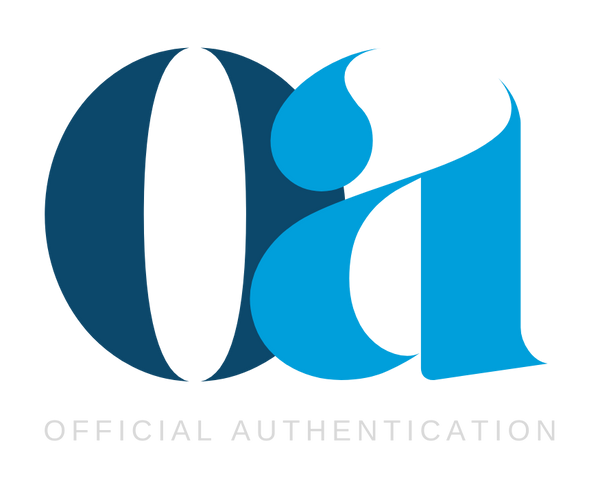In the ever-evolving world of luxury fashion, brand collaborations have become a powerful strategy to captivate audiences, drive innovation, and expand market reach. These partnerships, when executed thoughtfully, can significantly boost a brand's value while maintaining its core authenticity. Let's delve into the fascinating realm of luxury brand collaborations and explore their impact on both value creation and brand integrity.
The Rise of Luxury Collaborations
Luxury brand collaborations have come a long way since Louis Vuitton's groundbreaking partnership with artist Stephen Sprouse in the early 2000s. This iconic collaboration, which reimagined LV's classic monogram with New York-style graffiti, set the stage for a new era in luxury fashion.

Types of Luxury Collaborations
Luxury Brand Partnerships
When two luxury powerhouses join forces, the results can be spectacular. Take, for example, the Fendi and Versace collaboration, where each house reinterpreted the other's style to create two distinct collections.

This "swap" not only generated significant media attention but also allowed both brands to showcase their creativity and appeal to each other's customer base.
Luxury Meets Streetwear
One of the most successful collaboration trends in recent years has been the fusion of high-end luxury with streetwear brands. The Louis Vuitton x Supreme collaboration is a prime example, which not only drove Vuitton's revenues up by 21% but also helped the brand connect with younger, style-conscious consumers.

Celebrity Collaborations
Partnering with celebrities has proven to be a highly effective strategy for luxury brands. The adidas x Kanye West "Yeezy" line stands out as one of the most successful celebrity collaborations in fashion history, creating a cultural phenomenon and driving significant sales.

Impact on Brand Value
Luxury brand collaborations, when executed successfully, can have a profound impact on a brand's value. Here's how:
Increased Brand Awareness
Collaborations often generate substantial media coverage and social media buzz, exposing brands to new audiences. This increased visibility can lead to heightened brand awareness and potentially attract new customers.
Revenue Growth
Well-executed collaborations can drive significant sales growth. For instance, H&M's collaborations with high-end designers like Karl Lagerfeld have consistently led to sold-out collections and increased foot traffic in stores.
Market Expansion
Collaborations allow luxury brands to tap into new market segments. By partnering with streetwear brands or more accessible labels, luxury houses can appeal to younger consumers or those aspiring to own luxury items.
Preserving Authenticity in Collaborations
While collaborations offer numerous benefits, maintaining brand authenticity is crucial. Here are some strategies luxury brands employ to ensure their partnerships enhance rather than dilute their brand integrity.
Align with Brand Values
Successful collaborations are built on shared values and a genuine connection between partners. The Fendi x Versace collaboration, for example, worked well because of the authentic friendship between the brands' creative directors and the natural synergy in their design aesthetics.
Maintain Quality Standards
Luxury brands must ensure that collaborative products meet their high standards of quality and craftsmanship. This commitment to excellence helps preserve the brand's reputation and justifies premium pricing.
Tell Authentic Stories
Brands should focus on creating genuine narratives around their collaborations. Sharing the inspiration behind the partnership and offering behind-the-scenes glimpses can help humanize the brand and foster emotional connections with consumers.
The Role of Authenticity in Luxury Branding
In today's hyperconnected world, authenticity has become a critical factor in luxury branding. Consumers, particularly millennials and Gen Z, are increasingly seeking brands that offer genuine experiences and align with their values.
Dimensions of Brand Authenticity
Research has identified four key dimensions of perceived brand authenticity: continuity, credibility, integrity, and symbolism.
Luxury brands should strive to embody these qualities in their collaborations to maintain their authentic appeal.
Transparency and Openness
To build trust and credibility, luxury brands should be transparent about their practices, heritage, and production processes. This openness can help reinforce the brand's authenticity in the eyes of discerning consumers.
The Future of Luxury Collaborations
As the luxury market continues to evolve, we can expect to see more innovative and purpose-driven collaborations. Brands will likely focus on creating transformative experiences that go beyond products, addressing concepts like health, happiness, and mindfulness.
Conclusion
Luxury brand collaborations, when executed with care and strategic foresight, can significantly enhance a brand's value while maintaining its core authenticity. By aligning with the right partners, telling compelling stories, and staying true to their heritage and values, luxury brands can leverage collaborations to drive growth, expand their reach, and create meaningful connections with consumers. As the industry continues to evolve, those brands that can balance innovation with authenticity will be best positioned to thrive in the ever-changing landscape of luxury fashion.

